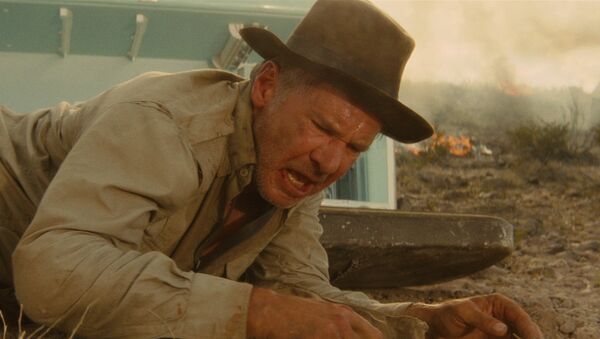Following the publication of a profile piece in the Western Australian, the 95-year-old Perth resident has found herself in the middle of an international scandal due to her extensive collection of antiquities.
Favourite headline of the week…@BBCNews: Indiana Joan!
— Matt D (@lifeinthedayof) 24 ноября 2017 г.
Nicknamed "Indiana Joan", the Australian has been described as the "real life tomb raider" with a "mischievous twinkle" in her eye, who acquired a considerable collection of artefacts from the Middle East that is said to be worth over A$1m (£571,000).
The article caused an outrage among both the Egyptian authorities and the archeological community.
Speaking to the Sydney Morning Herald, Director-General of the Retrieved Antiquities Department at Egypt's Supreme Council of Antiquities Abdel Gawad, said that the Egyptian government wants "to investigate how these pieces made it out of Egypt illegally."
READ MORE: Top Five Egyptian Archaeological Sensations of 2016
In an open letter to the Australian ambassador to Egypt, archaeologist Monica Hanna also called for an investigation into how Howard had managed to acquire the precious artefacts, claiming that the Australian great-grandmother "behaved as a pirate."
Argh! @__thewest__ you are literally glorifying the theft of cultural property & the destruction of critical context https://t.co/OEo9me08pL
— David S. Anderson (@DSAArchaeology) 6 ноября 2017 г.
Dr. Hanna also blasted the Western Australian for the positive spin that the newspaper gave to Mrs. Howard's activities.
"The celebratory tone of the article of her boasting on the destruction of archaeological sites sends a very negative image."
"These activities decontextualise the cultural heritage and transforms the archaeological finds from historical objects to mere aesthetic artefacts," the letter read.
The Australian Department of Foreign Affairs and Trade stated that it has launched an investigation into Mrs. Howard's case and if it determines that the artefacts were taken from Egypt illegally, it will return them to their country of origin, as required by the UNESCO conventions.


